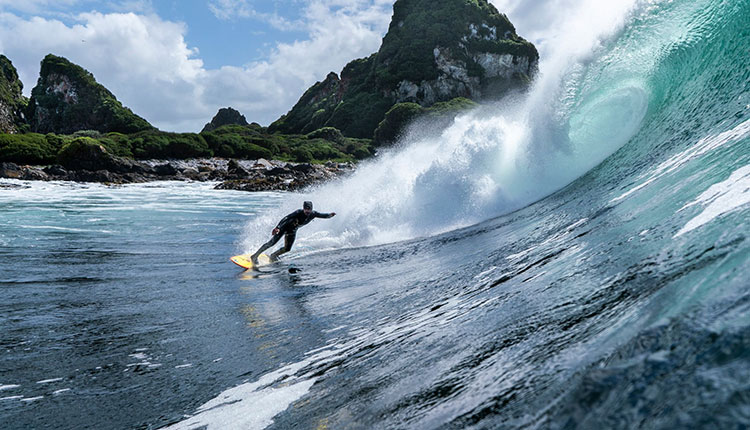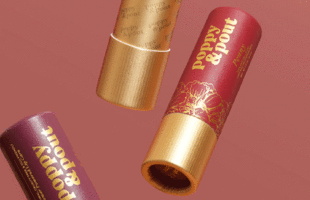
Patagonia, a provider of surf gear based in Ventura, California, has come up with a circular solution for its wetsuits in partnership with Bolder Industries, which develops sustainable solutions for rubber, plastics and other materials.
Earlier this year, the surf gear provider began collecting end-of-life Yulex wetsuits, made of natural rubber, to be broken down at the molecular level by Bolder Industries. Those wetsuit components will then be used as carbon black in the dyeing process of future Yulex wetsuits.
“At Patagonia, we strive to build the best products and constantly improve everything we do by developing new ways to do things,” says Mackenzie Warner, Patagonia material developer. “While collaborating on this material with Bolder Industries, we discovered that recovered carbon black from rubber scraps and Yulex wetsuits can be utilized to not only solution dye wetsuit materials but also black fabrics and trims to make products such as packs and jackets. We are excited to continue to find new ways to use this innovative new material and share it with industry.”
According to Patagonia, carbon black is used to dye the wetsuits’ recycled nylon lining and accounts for 15% to 20% of Patagonia wetsuits’ rubber foam.
The company adds that production of Bolder Industries’ BolderBlack uses about 90% less water and emits 90% fewer greenhouse gases than traditional carbon black. With recent adoptions of Yulex by other wetsuit brands, Patagonia hopes to see its collection program grow as more Yulex wetsuits enter the market.
Patagonia first partnered with Yulex in 2008 to develop a bio-based rubber to be used in wetsuits as a less-toxic replacement for neoprene. The bio-based rubber for the wetsuits comes from the sap of the Heavea tree instead of crude oil or limestone. Patagonia released its first neoprene-free wetsuits and first-ever Yulex wetsuits in 2012. Two years later, Patagonia gave the game-changing bio-rubber recipe to the wetsuit industry at large.
“The larger adoption of Yulex by major wetsuit brands has been amazing,” says Jason McCaffrey, director of Patagonia surf. “This end-of-life solution through our partnership with Bolder Industries is just one more benefit of using natural rubber.”
In 2020, Patagonia built a wetsuit research, development and repair center in Ventura called Wetsuit Forge. The company collects end-of-life wetsuits at the Wetsuit Forge location and removes zippers from the wetsuits before shipping them to Bolder Industries, which extracts carbon black from the wetsuits. The reclaimed material is sent to Patagonia’s manufacturer, Sheico, to make new wetsuits.
The first Patagonia wetsuits containing reclaimed BolderBlack will go on sale in the spring of 2025.
“We hope that this breakthrough in recycling and circularity will go well beyond the surf industry and will eventually be implemented across countless product sectors,” says Hub Hubbard, Patagonia surf product line manager. “We have successfully piloted this program using reclaimed carbon black from retired Yulex wetsuits as a main component in wetsuits and that cycle can repeat indefinitely. Yes, other brands have offered wetsuit collections for recycling, but the wetsuits have so far only been broken down mechanically into things like yoga mats and playground material. We are constantly working to reduce our impact and share solutions within the industry. Currently, we are collaborating with multiple brands to convert their wetsuits to Yulex and implement this program with Bolder Industries, providing a sustainable end-of-life solution.”
Patagonia says anyone can bring an end-of-life Yulex wetsuit to a local Patagonia store or ship it directly to the company for recycling to Patagonia Wetsuit Repairs at 188 W. Santa Clara St., Ventura, CA 93001. The company requests that wetsuits be washed and thoroughly dried before they are returned or mailed in.


